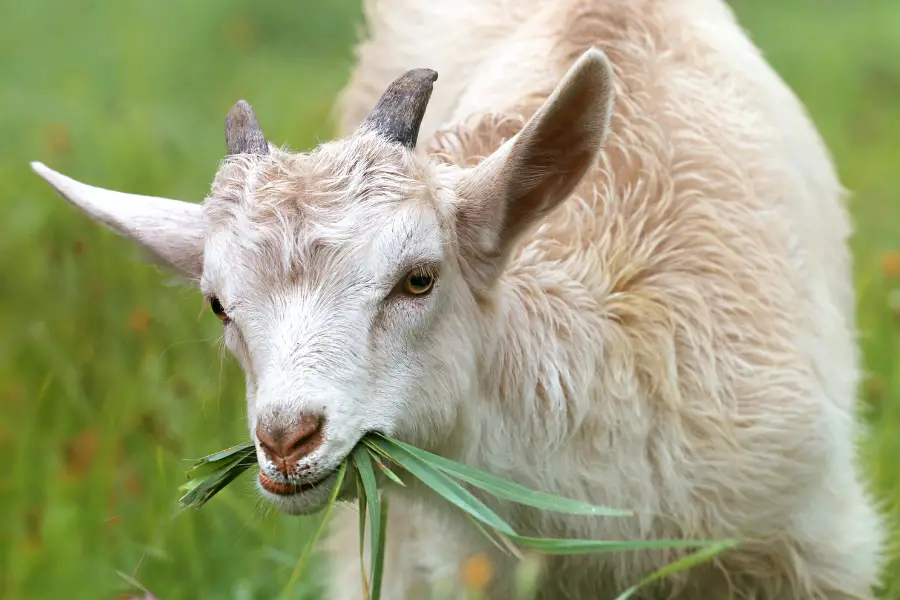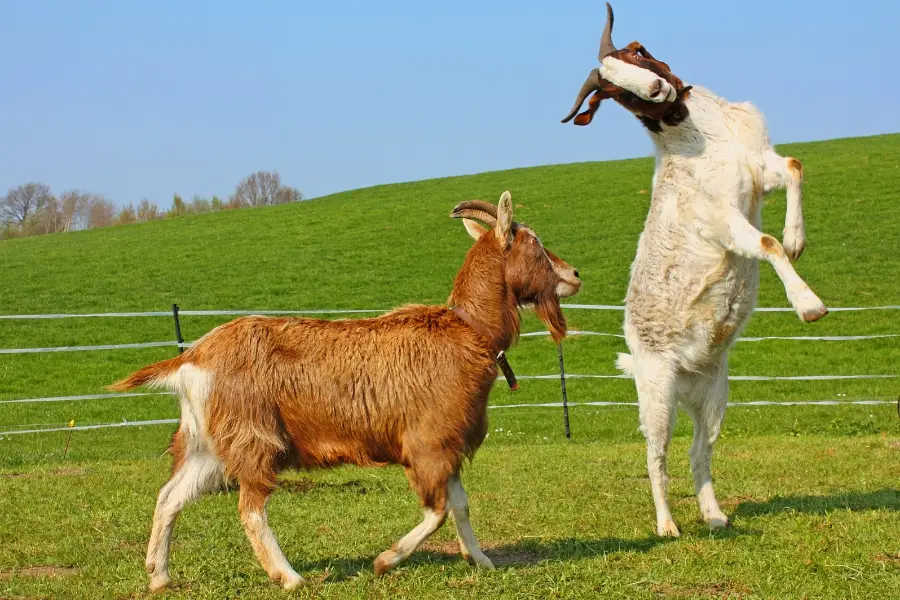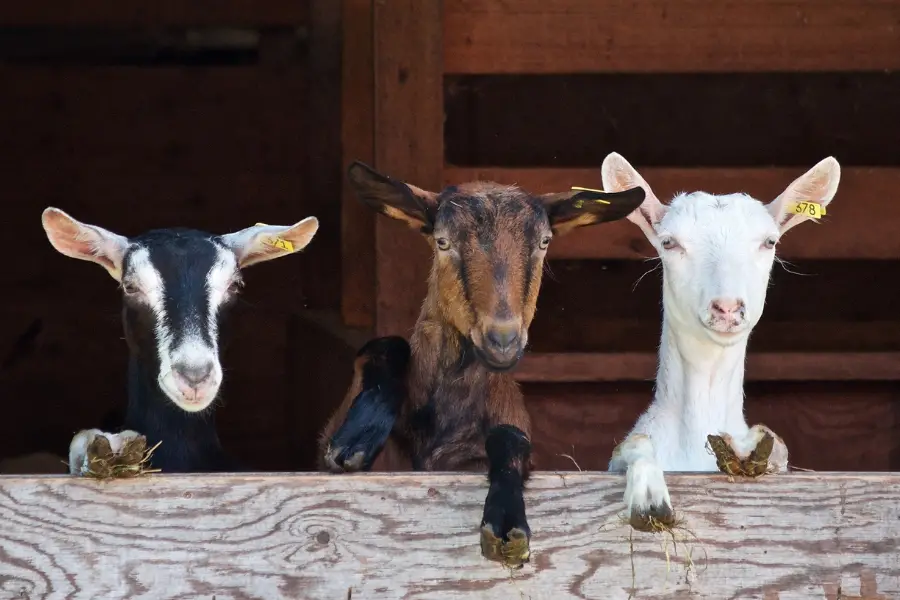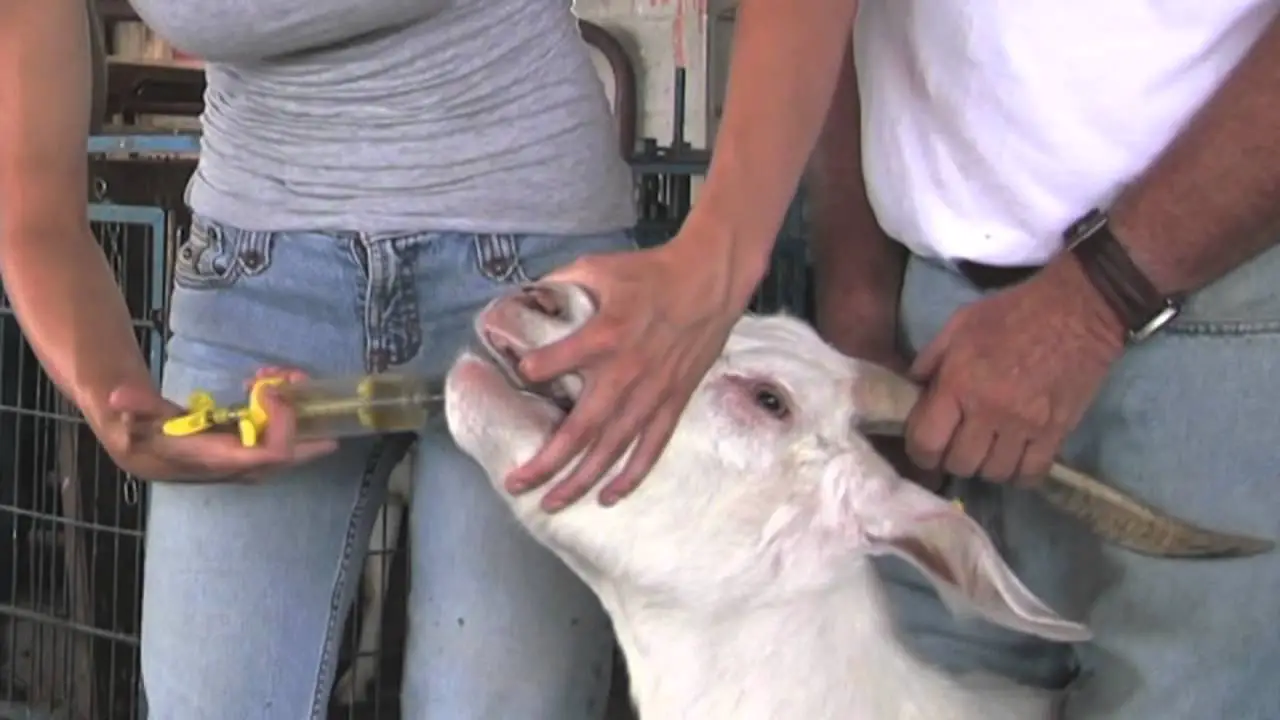
In this complete guide to worming goats (also called deworming goats), we answer the most common questions that farmers ask about the best wormers for goats, dosages, natural goat wormers, and much more!
Table of contents
- Why Deworm Goats?
- How Often Do You Worm Goats?
- Best Wormer for Goats
- Proper Dosing
- How to Deworm Goats Naturally
- Goat Deworming Protocol
- Goat Wormer Dosage Chart – Goat Worming Schedule for Farmers
- Goat Wormer Tractor Supply – Best Wormers to Buy from TractorSupply.com
- Worming Pregnant Goats – What Every Farmer Needs to Know
- Deworming Goats After Kidding
- When to Worm Baby Goats
Why Deworm Goats?
Goats are animals that are prone to the internal parasites. In parts of the world like the US, the stomach worm like Haemonchus Contortus (name of stomach worm), also known as “Barberpole worm” are the main concern.
This stomach worm will suck the blood of the goats, and if doesn’t get treatment, causes deficiency of blood and eventually death. The infection of the stomach worm reaches its peak in summer. In cold seasons, the stomach worm causes diarrhoea, ill thrift, and if untreated causes death.
Goats are the browsers like deer. They want to feed on the top down to guard themselves from the parasites. If the goats are enforced to browse grasses then there are chances that the goats may consume the stomach worms.
Goats are demanding eaters, and they like the newest and most nutritious plant material, i.e. the new growing grasses closest to the earth where there are worms.
The first line of defense against the internal parasites is the usage of the FAMACHA (a method to check the goats for the treatment against the internal parasites) field examination. However, this FAMACHA only handy for anaemia-producing infection. This FAMACHA will provide a method to observe the signs of anaemia (deficiency of blood) in the goats visually.
The producers can examine the eye membrane of the goat for the colouration. Red to pink membrane colour indicates a low worm-load. Pink-light pink membranes suggest further testing and de-worming. A whitish membrane means that the goat requires immediate treatment as it is fully loaded with worms.
FAMACHA can also point to anaemia that can be a result of liver flukes so that the farmers can take faecal samples from all healthy and infected goats for verification of worm-load.
How Often Do You Worm Goats?
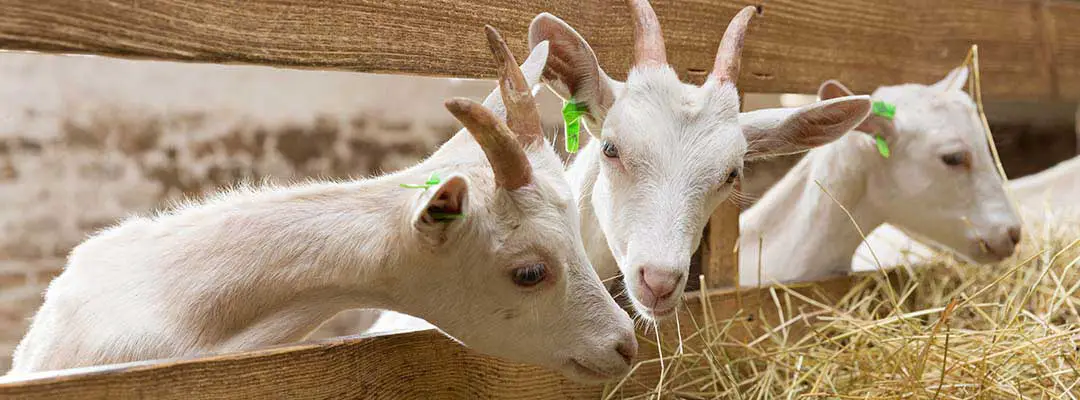
The frequency of de-worming depends on the wetness or dryness of the area, population density in the pens and pastures, parturition time, overall health status of the goats, and a host of another thing. The number of goats that an owner can run on a given portion of land is not based on the available plant material but instead on how well the worm-load can be controlled.
The de-wormers should be used in minimum numbers of treatment to control the internal parasites. The overuse of the de-wormers will make the parasites resistant to the de-worming. However, a mixture of safe grazing and anthelmintic (de-worming medicines) dose should be used to control the worm’s infection.
You must dose properly. This means selective treatment in the right amount. Extended use of the same de-wormers enhances the development of worm’s resistance to that specific de-wormer. Too frequent de-wormer alternation can result in development of multiple de-wormer resistance.
Never treat all the animals in your herd at the same time. Selectively treat goats after they are evaluated using the FAMACHA score or the Five Point Check.
Best Wormer for Goats
There are three general classes of de-wormers and are Benzimidazoles, imidazothiazoles, and macrolides. The benzimidazoles are most often used for de-worming purposes. These include wormers like Safeguard, Panacur, Valbazen etc. The imidazothiazoles include the de-wormers like levisol, tramisol etc. The third class of dewormers includes ivomec and moxidectin etc.
In all cases, you should work closely with your veterinarian to select the proper dosage. It is also important that you adhere to the withdrawal time for meat and milk.
Never use products formulated for cows (cattle) or pigs (swine). Only use products designed specifically for goats (and in some cases, with the aid of your veterinarian, sheep).
Safeguard Goat Wormer/ Panacur Goat Wormer
The active ingredient of this dewormer is “Fenbendazole.” It comes under the general class benzimidazoles. Fenbendazole is a general de-wormer that works against all the stomach worms, hookworms, whipworms etc. The recommended dose of safeguard goat wormer is 2.3mg/lb (5mg/kg). Under the condition of continued exposure to the internal parasite, retreatment may be required after 4-6 weeks. However, avoid administering in the goats within six days of slaughter. The withdrawal time in milk has not been established and avoids applying to lactating goats.
Fenbendazole is intended for use with goats. Follow the directions carefully, and work closely with your veterinarian.
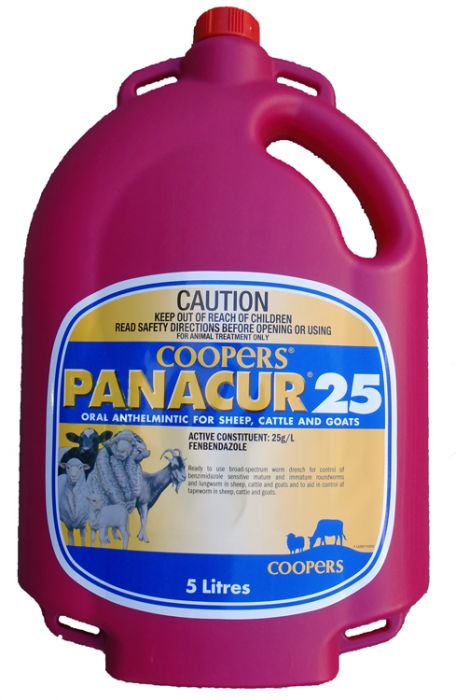
Ivermectin Wormer/Ivomec Wormer
Please review our thorough guide to deworming goats with ivermectin. Use only ivermectin sheep drench. Do not use formulations made for cows or pigs.
Note that ivermectin is not intended for use with goats. Using ivermectin with goats is an off-label use only. Ivermectin can only by used on goats with a veterinarian’s assistance.
Cydectin Wormer
Please refer to our Guide for using Cydectin on Goats. Cydectin, also known as moxidectin, can be used on goats when you are working closely with your veterinarian. Only use the sheep drench. Do not use any products formulated for swine or cattle.
Be aware that cydectin is not intended for use with goats. Using cydectin with goats is an off-label (extra-label) use only. Cydectin can only by used on goats with your veterinarian’s assistance.
Prohibit Wormer
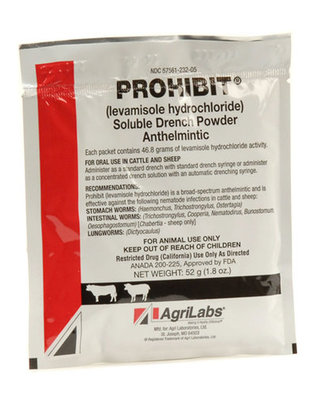
This de-wormer contains levamisole (also called Leva-Med). The efficacy of this de-wormer is limited against larvae. This de-wormer has the narrowest margin of safety.
Note that Prohibit / levamisole / Leva-Med is not intended for use with goats. Using levamisole with goats is an off-label (extra-label) use only. Levamisole can only by used on goats with your veterinarian’s supervision.
Valbazen Goat Wormer
Valbazen is a broad spectrum dewormer that contains albendazole as an active ingredient. This de-wormer is good against liver flukes.
However, it is not a safe de-wormer during the 1st trimester of pregnancy. Consult with your veterinarian.
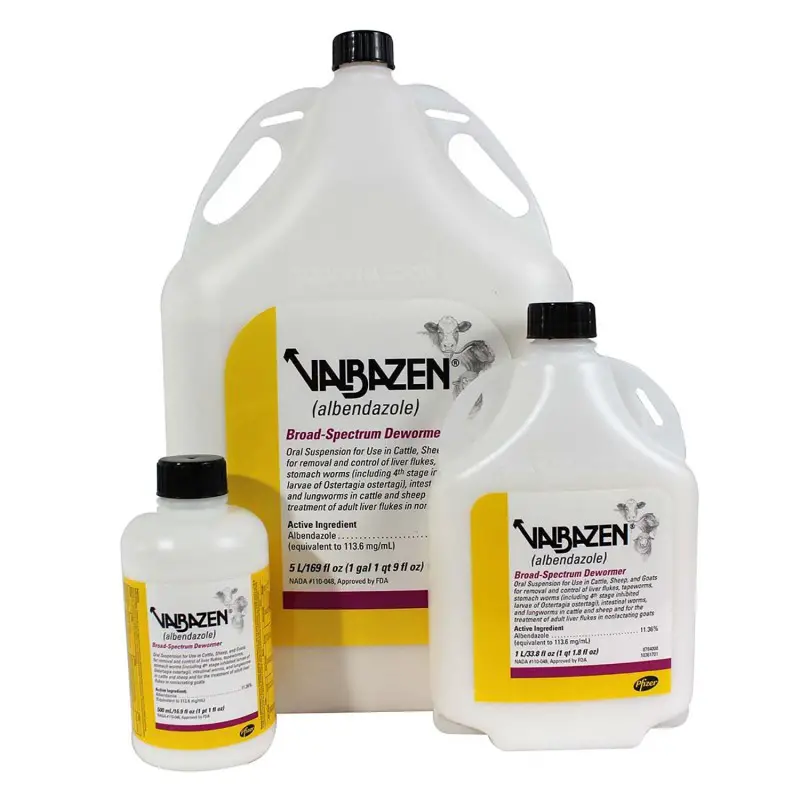
Rumatel Goat Wormer
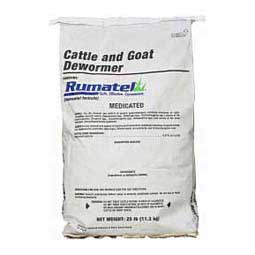
This de-wormer is also useful in the control and removal of stomach worms. The active ingredients are morantel tartrate (Rumatel). It can only be given to goats by mouth (orally.) Read the label carefully and consult with your veterinarian.
Proper Dosing
Please consult your veterinarian before beginning any goat deworming activities at all.
Fortunately, the recommended dosing for all these products is readily available due to the availability of the Deworming Chart for Goats. A link to the chart can be found further down in this document. Follow the link here.
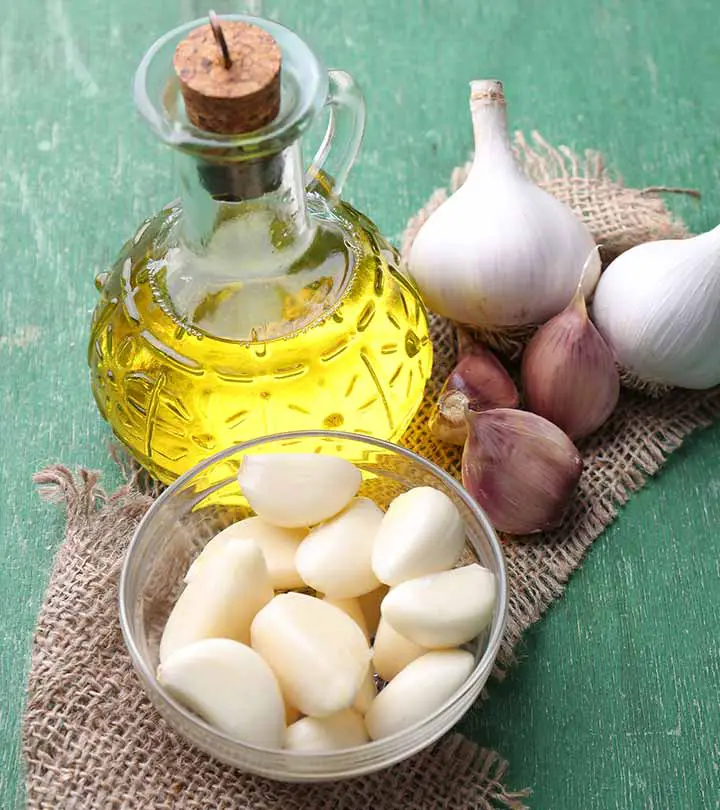
How to Deworm Goats Naturally
Natural wormers are an excellent way to keep the goat free from parasites; especially the goats are for meat or dairy products. These natural de-wormers will prevent the goat from developing a resistance to the chemical wormers. Maintaining the goats on natural wormers and running regular faecal checks can be very useful.

Herbal Goat Wormer
Herbal wormers are one option to have a chemical-free deworming. Several herbal dewormers are available in the market for most kinds of farm animals. However, it is essential to monitor the animals when using herbal wormers for the signs of parasite infection by the use of a faecal worm egg test and the FAMACHA protocol.
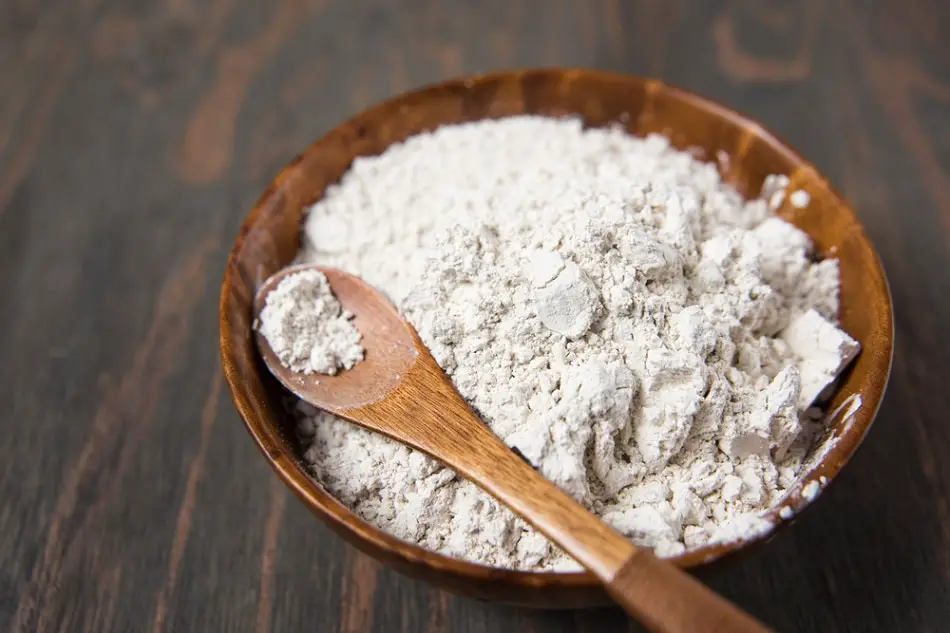
There are several Natural Dewormers that are commercially available. See the links below:
Verm Oust Natural Herbal Dewormer, 2 lb bag
Herbal Dewormer and Wellness Blend
Bella’s Naturals Herbal Blend with Diatomaceous Earth
NVH Natural Pet Inulin-PK for Sheep and Goats

Goat Deworming Protocol
There are several protocols available for de-worming of the goats. Work with your trusted veterinarian and the local agriculture office to find out the prevalence of parasites in your area.
Use the FAMACHA score or the Five Point Check, on each goat, and then selectively treat them.
Goat Wormer Dosage Chart – Goat Worming Schedule for Farmers
Please consult your veterinarian before beginning any goat deworming activities at all.
The gold standard for the proper dosing of goat dewormers is the Deworming Chart for Goats. It was originally created by Ray M. Kaplan, DVM, PhD, DACVM, DEVPC (University of Georgia), and then updated by Patty Scharko DVM, MPH (Clemson University). If was revised again in 2021 by Michael Pesato DVM DABVP (Mississippi State University) with support from Susan Schoenian of the American Corsortium for Small Ruminant Parasite Control and Dr. Adriano Vatta of Louisiana State.
Please consult your veterinarian before beginning any goat deworming activities at all.
Goat Wormer Tractor Supply – Best Wormers to Buy from TractorSupply.com
Two of the best wormers that you can buy from TractorSupply.com are:
- Valbazen (Albendazole) Suspension Dewormer
- Safe-Guard Dewormer
Worming Pregnant Goats – What Every Farmer Needs to Know
Can You Worm a Pregnant Goat?
The stress of kidding, switching from a milk-based feed to concentrate and forages, and accommodation of weaned goats in a new surroundings results in stress on the immune system and can lead to health issues in pregnant goats, kids, and lactating goats. Until they reach to about one year of age, kids are susceptible to health issues.
The use of dewormers on pregnant, lactating, and kid goats is controversial. Since you will already be working closely with your veterinarian to administer the drugs, be sure to inform your trusted vet of any pregnant, lactating or young goats in your herd.
It is therefore essential to monitor the lactating goats closely for parasitic problems. Does may become wormy very quickly, and if they become severely infected, they may need to be dried up to recover.
The goats may become more infected in the summer season with barber pole worm that causes anemia as well as depressed animal’s production and lead to bottle jaw disease. Infections will reduce the weight of the animals, and there will be a reduction in milk production too.
In winter, the goats may face the stress from brown stomach worms. These worms don’t cause anaemia but may cause bottle jaw disease in goats. There may be other worms too that causes diarrhea, loss of appetite, reduced milk production, excessive weight loss.
Therefore, it is essential that you work closely with your veterinarian.
Deworming Goats After Kidding
Once the doe gives birth, then she should be wormed following the birth, however the exact timing should be decided with the help of your vet. You female goat will need attention as the the strain of kidding is hard on the female. This can make the female goat more vulnerable to the parasites and worm, and the hormones of kidding can stimulate parasites. The worms may be in the form of rice or the goat may become weak and thinner even having a proper diet.
Again, it is important to consult with your veterinarian regarding pregnant and lactating goats.
When to Worm Baby Goats
Baby goats are more prone to tapeworm infection along with other parasites like other adult goats. Some farmers begin treatment at with weeks old, and continue every 1-2 months until the kids reach a year old. However, since kids have different requirements than adults, you must work with your veterinarian to determine the proper dosing and dosing schedule.


